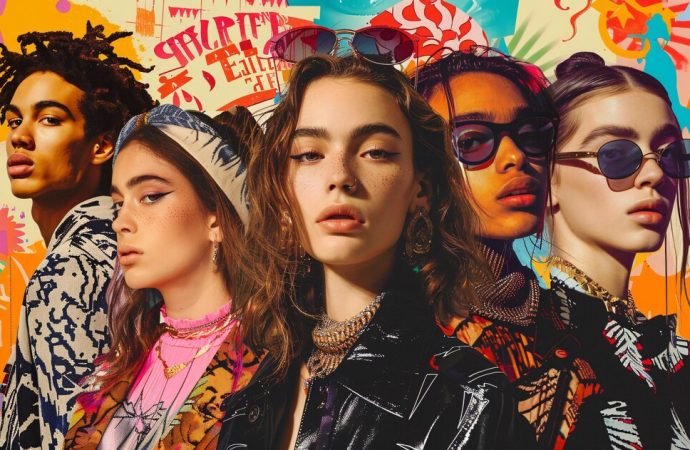Introduction Pop culture is a powerful force that shapes society, affecting everything from our daily habits to our most deeply held beliefs. As technology connects us more than ever before, pop culture’s influence is growing even stronger. This article looks at how pop culture shapes our world in areas like music, movies, fashion, and social
Introduction
Pop culture is a powerful force that shapes society, affecting everything from our daily habits to our most deeply held beliefs. As technology connects us more than ever before, pop culture’s influence is growing even stronger. This article looks at how pop culture shapes our world in areas like music, movies, fashion, and social media.
Defining Pop Culture
Pop culture, short for “popular culture,” includes the ideas, trends, and behaviors that are widely accepted and enjoyed by the general public. It includes things like music, TV, movies, fashion, and art. Unlike “high culture,” which is often associated with more exclusive or elite tastes, pop culture is for everyone. It’s constantly changing, adapting to what people like and value.
Understanding Pop Culture’s Influence
Pop culture influences many parts of life, including entertainment, technology, fashion, and even the way we talk. It reflects the values of society and also helps shape them. By looking at what’s popular, we can learn a lot about the times we live in.
The Historical Context of Pop Culture
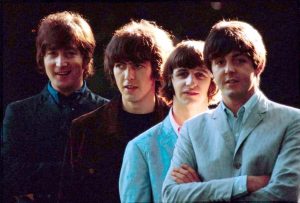
Image by: Yandex.com
To understand how pop culture works today, it helps to look at its past. In the 20th century, new technologies like radio, television, and movies changed how people experienced culture. Icons like Elvis Presley and The Beatles didn’t just entertain; they changed the way people thought about race, gender, and more. In the 21st century, the rise of the internet and social media has made pop culture even more accessible, allowing ideas to spread instantly around the world.
The Role of Celebrities in Pop Culture
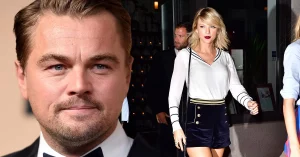
Image by: Yandex.com
Celebrities play a big role in shaping pop culture. What they wear, what they say, and what they support can influence millions of people. For example, when stars like Taylor Swift or Leonardo DiCaprio speak out about politics or the environment, it sparks conversations and motivates people to take action. This is known as the “celebrity effect,” and it shows how pop culture can influence public opinion and behavior.
Music as a Driver of Change
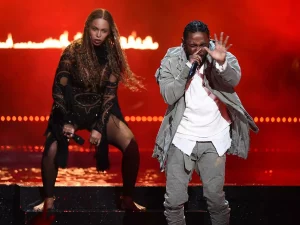
Image by: Yandex.com
Music has always been a big part of pop culture and has the power to bring people together. Different music genres, like hip-hop or rock, have also been at the forefront of social change. For example, hip-hop started as a way for marginalized communities to speak out about issues like racism and inequality. Artists like Beyoncé and Kendrick Lamar use their music to highlight social problems and encourage activism. Music can make people feel and think in ways that change how they see the world.
In simpler terms, pop culture shapes society in many ways from the clothes we wear to the causes we care about. Through music, movies, fashion, and social media, it connects people and reflects our ever-changing values.
The Cinematic Influence
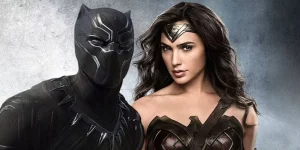
Image by: Yandex.com
Movies are a big part of pop culture, shaping how people think and feel. Films can break stereotypes, make people think, and even inspire change. Hollywood, as a major cultural force, influences audiences all over the world. Movies like Black Panther and Wonder Woman have changed the way people see representation in film, giving a voice to underrepresented groups and promoting diversity. The stories and characters in movies often reflect society and shape our views on important issues.
Fashion as an Expression of Identity
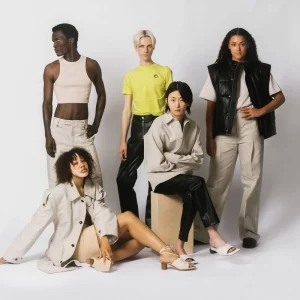
Image by: Yandex.com
Fashion is a powerful way to show identity and reflect cultural trends. Designers and influencers create fashion that mirrors society’s shifts, like the rise of sustainable clothing due to environmental concerns. Fashion also helps challenge norms, like promoting gender-neutral clothing. Icons like Rihanna and Beyoncé use fashion to support body positivity, gender equality, and cultural pride. Through what we wear, we express who we are and connect to larger cultural movements.
The Role of Social Media

Image by: Yandex.com
Social media has changed how we interact with pop culture. Platforms like Instagram, TikTok, and Twitter allow trends to spread quickly and widely. Social media influencers play a huge role in shaping trends and what people buy. With so many people creating content, voices that were once ignored can now contribute to the conversation. But this rapid sharing of information also comes with challenges, like the spread of misinformation and the pressure to follow curated, perfect-looking lifestyles.
Pop Culture and Social Movements
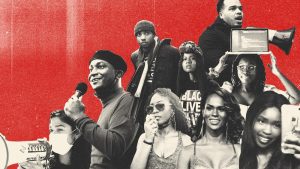
Image by: Yandex.com
Pop culture has also played a major part in spreading social movements. Campaigns like #MeToo and Black Lives Matter have used social media and pop culture to raise awareness and push for change. Celebrities and influencers often use their platforms to support social justice causes, giving a voice to those who need it most. Pop culture creates a space for people to come together, talk about important issues, and take action.
The Globalization of Pop Culture

Image by: Yandex.com
Pop culture now connects people around the world, blending different cultural ideas. For example, K-pop and Bollywood have become popular globally, influencing the music and movie industries worldwide. This global exchange of culture can promote understanding, but it also raises questions about cultural appropriation and the risk of losing unique traditions. As pop culture spreads globally, it’s important to respect and appreciate the diversity of cultures we share.
Pop Culture’s Influence on Language and Communication

Image by: Yandex.com
Pop culture has a big impact on how we talk and communicate. It shapes the words we use in everyday conversations, from slang in music and TV to viral internet phrases. Social media makes this happen even faster, with memes, GIFs, and hashtags becoming new ways to communicate. Popular shows like Friends or phrases like “OK Boomer” quickly become part of everyday language, crossing generations and cultures.
Language shaped by pop culture helps people connect and shows a shared identity. As new phrases come from pop culture, they show how society is changing. But this quick change in language can also cause problems. Older generations or people from different places may find it hard to keep up with new trends. Looking at how pop culture affects language helps us understand how people connect and how society grows.
The Future of Pop Culture Influence: Shaping Tomorrow’s Society
As technology grows and connects us more, pop culture’s influence will keep expanding. Virtual reality (VR) and augmented reality (AR) will likely change how we experience entertainment, fashion, and social media. In the future, pop culture won’t just be in the real world it will also happen in digital spaces. For example, virtual concerts, like the one Travis Scott did in the game Fortnite, show how music, movies, and celebrity interactions might evolve.
Artificial intelligence (AI) will also play a big role in shaping pop culture. AI can create music, virtual influencers, and personalized content. This will make pop culture more accessible and tailored to individuals. But there are also concerns. AI could make it harder to tell what’s real or could create online bubbles where people only see what they already agree with.
The future of pop culture will be more connected to technology, reaching people all over the world in a more personal way. However, it will be important to think about the ethical side of these changes. Pop culture should continue to support inclusivity, diversity, and positive change as we move forward.
Analysis Table: The Impact of Pop Culture
| Element | Impact on Society | Examples |
| Music | Unites individuals for social causes; inspires activism | Civil rights protest songs; contemporary artists’ messages |
| Film | Challenges stereotypes; fosters empathy and understanding | “Black Panther”; diverse narratives |
| Social Media | Democratizes content creation; rapidly spreads trends | TikTok challenges; influencer culture |
| Fashion | Reflects societal values; promotes self-expression | Streetwear trends; celebrity fashion statements |
Comparative Table: Pop Culture Influence Across Mediums
| Medium | Positive Influence | Negative Influence |
| Music | Inspires social change; unites communities | Potentially glamorizes negative behaviors |
| Film | Educates and fosters empathy | Reinforces stereotypes; misrepresents cultures |
| Social Media | Empowers individuals to share their voices | Can promote misinformation and divisive narratives |
| Fashion | Encourages self-expression and diversity | Can foster elitism and unrealistic beauty standards |
Conclusion
Pop culture influence is a powerful force that shapes society in myriad ways. It reflects and challenges societal norms, influences individual identities, and drives social change. As we continue to navigate an increasingly interconnected world, understanding the impact of pop culture is essential. By critically engaging with pop culture, we can harness its potential to inspire positive change and foster a more inclusive and equitable society.

